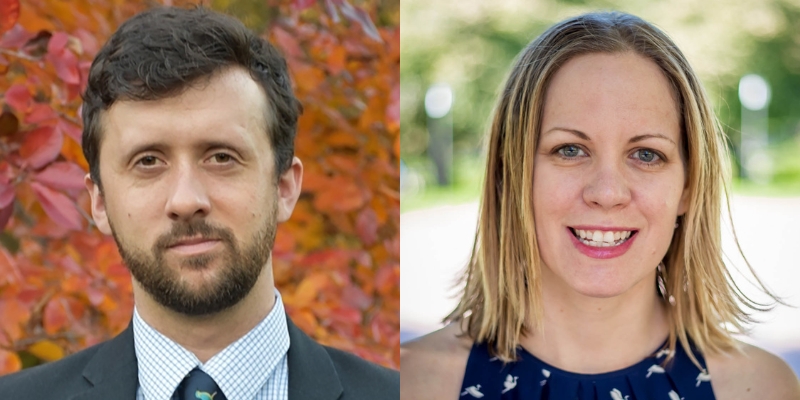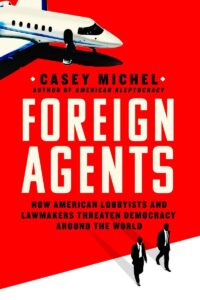377. Casey Michel with Katy Pearce: A Danger to Democracy
Town Hall Seattle Civics Series
Release Date: 10/23/2024
 400. Clyde W. Ford: Who's Left Out of Black History
400. Clyde W. Ford: Who's Left Out of Black History
Town Hall Seattle Civics Series
How much do you know about Black history? From African women’s rebellions on slave ships to a former enslaved man whose account of the first Juneteenth differs from what we hear today, to Benjamin Banneker’s life, to how Islam found its way into American popular music in multiple genres, there is a lot of information that doesn’t necessarily make it into your average curriculum. In A High Price for Freedom: Raising Hidden Voices From the African-American Past, author and historian Clyde W. Ford addresses these and other topics, seeking to illuminate and amplify little-known...
info_outline 399. Indigenous Peoples’ Day: Turning Adversaries into Tribal Allies to Save Salmon
399. Indigenous Peoples’ Day: Turning Adversaries into Tribal Allies to Save Salmon
Town Hall Seattle Civics Series
Our region is facing tremendous setbacks for salmon populations and Northwest tribal treaty rights. Fish runs continue to fall short while Indigenous communities bear the brunt of climate change, political polarization, and existential threats to their way of life. Tribes can’t overcome these issues alone, but it’s not just a matter of finding allies — it’s how to get them in the game. The Billy Frank Jr. Salmon Coalition, formed by Salmon Defense, has taken an innovative approach to protect salmon, restore ecosystems, and build climate resilience by uniting unexpected allies, who...
info_outline 398. Speaking of Seattle: After the Ballot
398. Speaking of Seattle: After the Ballot
Town Hall Seattle Civics Series
Just weeks after Seattle’s November elections, Town Hall Seattle kicks off a timely, can’t-miss series hosted by Marcus Harrison Green. The panel features political strategist Crystal Fincher, The Stranger’s news editor Vivian McCall, and the South Seattle Emerald’s political columnist Tobias Coughlin-Bogue. Together they’ll cut through the noise to unpack what the results really mean—from who’s setting the agenda at City Hall to what’s looming in Olympia, and connect it all to the turbulent political currents in Washington, D.C. Expect an unflinching, illuminating...
info_outline 397. Advancing Climate Resilience with Connected Communities
397. Advancing Climate Resilience with Connected Communities
Town Hall Seattle Civics Series
Town Hall Seattle, Juneau Street Resilience Pod, and the City of Seattle’s Office of Sustainability and Environment hosts an evening with climate justice leaders who are reimagining our climate future in Seattle and beyond; discussing how community leaders, local government and academia can use joy and storytelling to build relationships and actualize climate resilience strategies, and sharing more about the upcoming One Seattle Climate Action Plan Update, including how you can get involved! Moderator Nancy Huizar (they/them/theirs) is an environmental justice activist, facilitator, and...
info_outline 396. In the Spirit of Right and Respectful Relations: Conversations about Indigenous Ways of Knowing and Being in Nature
396. In the Spirit of Right and Respectful Relations: Conversations about Indigenous Ways of Knowing and Being in Nature
Town Hall Seattle Civics Series
In relationship with , Braided River is celebrating the launch of their newest project, In the Spirit of Right and Respectful Relations: Conversations about Indigenous Ways of Knowing and Being in Nature. As told to Kurt Russo, with a foreword by Jay Julius Xw’tot lhem, and illustrations by Fiorella De La O (Quechua), this book invites readers into a conversation rooted in Indigenous ways of knowing and being in nature. The vision of the project is to draw on ancestral knowledge to further empower and inspire Indigenous-led environmental campaigns with...
info_outline 395. Nilanjana Dasgupta with Paula Boggs: How Small Changes Can Make a Big Impact
395. Nilanjana Dasgupta with Paula Boggs: How Small Changes Can Make a Big Impact
Town Hall Seattle Civics Series
How can one person fight for social justice? Can everyday people actually make changes in systemic, structural inequality? Social psychologist and author of the book Change the Wallpaper, Nilanjana Dasgupta offers science-driven answers to these questions, arguing that social shifts start with small changes to our “wallpaper,” or the things that we experience in our daily lives. In other words, we need to revise the hyperlocal cultures we live in to make broader change. Dasgupta believes that these small shifts in our cultural “wallpaper” are far more effective in producing...
info_outline 394. Shannon Watts with Brooke Baldwin: Fired Up
394. Shannon Watts with Brooke Baldwin: Fired Up
Town Hall Seattle Civics Series
As founder of Moms Demand Action — the nation’s largest grassroots movement against gun violence — author Shannon Watts has helped thousands of women find their voice and take action. In her new book, Fired Up, Watts outlines a practical and inspiring framework for reigniting purpose, confidence, and ambition. With real-life stories from women across generations and backgrounds, Fired Up offers tools to help readers identify what sparks them and live with greater intention and impact. Watts seeks to challenge the negative narrative that many women hold, asserting that...
info_outline 393. Megan Greenwell with Jay Willis: Bad Company: Private Equity and the Death of the American Dream
393. Megan Greenwell with Jay Willis: Bad Company: Private Equity and the Death of the American Dream
Town Hall Seattle Civics Series
Did you know that private equity firms have a hand in many U.S. industries, including hospitals, daycare centers, supermarket chains, local newspapers, and prison service providers? They also manage highways, municipal water systems, fire departments, emergency medical services, and a growing swath of real estate. In her new book, Bad Company, journalist Megan Greenwell illuminates how ingrained private equity is, and how it’s preying on the most vulnerable people in our society, controlling congress, and causing destruction in communities around the country. Private equity is a system...
info_outline 392. Anna Malaika Tubbs with Florangela Davila: What American Patriarchy Has Hidden from Us
392. Anna Malaika Tubbs with Florangela Davila: What American Patriarchy Has Hidden from Us
Town Hall Seattle Civics Series
One guiding principle for resisting the patriarchy in the United States is to demand equal rights for men and women. Yet, author and multidisciplinary expert Dr. Anna Malaika Tubbs argues that fighting patriarchal culture is more complicated than that. Tubbs believes that this fabricated hierarchy became so deeply ingrained over time that it now goes unnoticed. She outlines the history of patriarchy in the United States along with everything it intentionally conceals. Pulling from her latest book, Erased: What American Patriarchy Has Hidden from Us, Tubbs highlights how the United States...
info_outline 391. Building a Bikeable Seattle: A Bike Everywhere Day Bash!
391. Building a Bikeable Seattle: A Bike Everywhere Day Bash!
Town Hall Seattle Civics Series
Is Seattle on the cusp of a biking Renaissance? From Beacon Hill to SODO to the Waterfront and Downtown, the next few years will bring major improvements to Seattle’s growing network of connected and separated bike lanes and bike paths. That’s good news for people who want a safer, healthier, more equitable and climate-friendly city. Join Cascade Bicycle Club on Bike Everywhere Day for a conversation with climate journalist and bike advocate Paul Tolme, Biking Uphill in the Rain author and Seattle Bike Blog founder Tom Fucoloro, and Cascade Bicycle Club Policy Manager Tyler...
info_outline
If there is one thing on our collective minds these days, it is the issue of politics. But for all the interest it piques, much of it remains a mystery to the American public. Bestselling author and journalist Casey Michel, who tackled the problem of financial corruption in his first book American Kleptocracy, sheds light on an issue that may be unknown to those outside the Capitol.
In Michel’s new book Foreign Agents: How American Lobbyists and Lawmakers Threaten Democracy Around the World, he details how one group has worked as foot soldiers for authoritarian, repressive regimes. In the process, they’ve not only established dictatorships and spread kleptocratic networks, but they’ve successfully guided U.S. policy without the rest of America being aware. And now, Michel asserts, some of them have begun turning their sights on American democracy itself.
These Americans are known as foreign lobbyists, and many of them spent years laundering reputations and getting cozy in Washington with dictatorships. Michel writes of foreign lobbyists throughout history–including those who built alliances with Mussolini and the Nazis, but also contemporary Americans: in law firms and consultancies, among PR specialists and former lawmakers, and even within think tanks and universities. Foreign Agents illuminates these figures past and present and determines that they pose a threat to the future of American democracy.
Casey Michel is an author, journalist, and director of the Combating Kleptocracy Program with the Human Rights Foundation. He is the author of American Kleptocracy, named by The Economist as one of the “best books to read to understand financial crime.” His writing on offshoring, foreign lobbying, authoritarianism, and illicit wealth has appeared in Financial Times, The Wall Street Journal, The Atlantic, Foreign Affairs, and The Washington Post, among other outlets, and he has appeared on NPR, BBC, CNN, and MSNBC, among other stations. He has also testified in front of the Senate Judiciary Committee on the links between illicit financial networks and national security. He received his Master’s degree in Russian, Eurasian, and East European Studies from Columbia University’s Harriman Institute, and served as a Peace Corps Volunteer in northern Kazakhstan. Foreign Agents is his second book.
Dr. Katy E. Pearce is an Associate Professor in the Department of Communication at the University of Washington and holds affiliations with the University of Washington’s Ellison Center for Russian, East European and Central Asian Studies and the University of Washington’s Center for an Informed Public. She is the chair of the Communication and Technology Division of the International Communication Association and is an associate editor at the Journal of Computer-Mediated Communication. Her research focuses on social and political uses of technologies and digital content in the transitioning democracies and semi-authoritarian states of the South Caucasus and Central Asia, but primarily Armenia and Azerbaijan.

